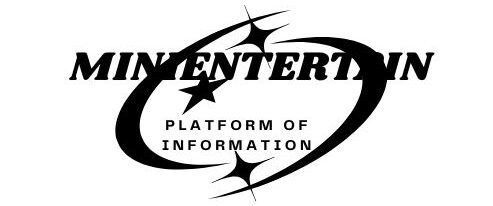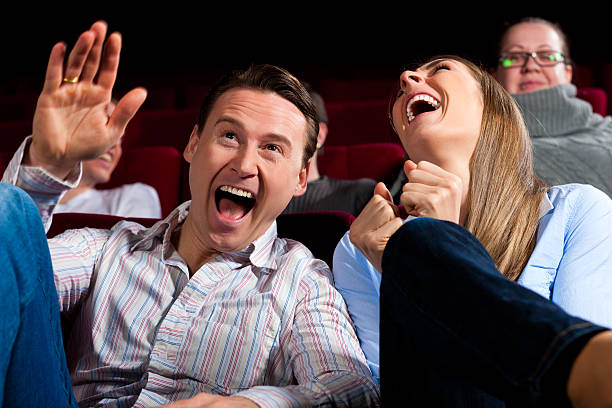
In this article, we will explore the 10 best comedy movies, highlighting their directors and what makes each film stand out. Comedy films uniquely transport us from our everyday lives into worlds filled with laughter and joy. Whether through sharp wit, slapstick humor, or heartwarming narratives, the best comedies resonate with audiences across generations.
1. Introduction
Comedy films have a unique ability to uplift spirits, provoke laughter, and create lasting memories. From classic parodies to heartfelt stories of friendship, the best comedies resonate across generations, blending humor with relatable themes. In this exploration of the 10 best comedy movies, we celebrate the films that have not only entertained audiences but also influenced the genre itself. Each of these cinematic gems showcases distinctive storytelling, memorable characters, and unforgettable lines, ensuring their place in the hearts of viewers. Join us as we delve into the world of laughter and highlight the finest comedic masterpieces in film history.
Table of Contents
2. The 10 Best Comedy Movies
1. “Some Like It Hot” (1959) – Directed by Billy Wilder
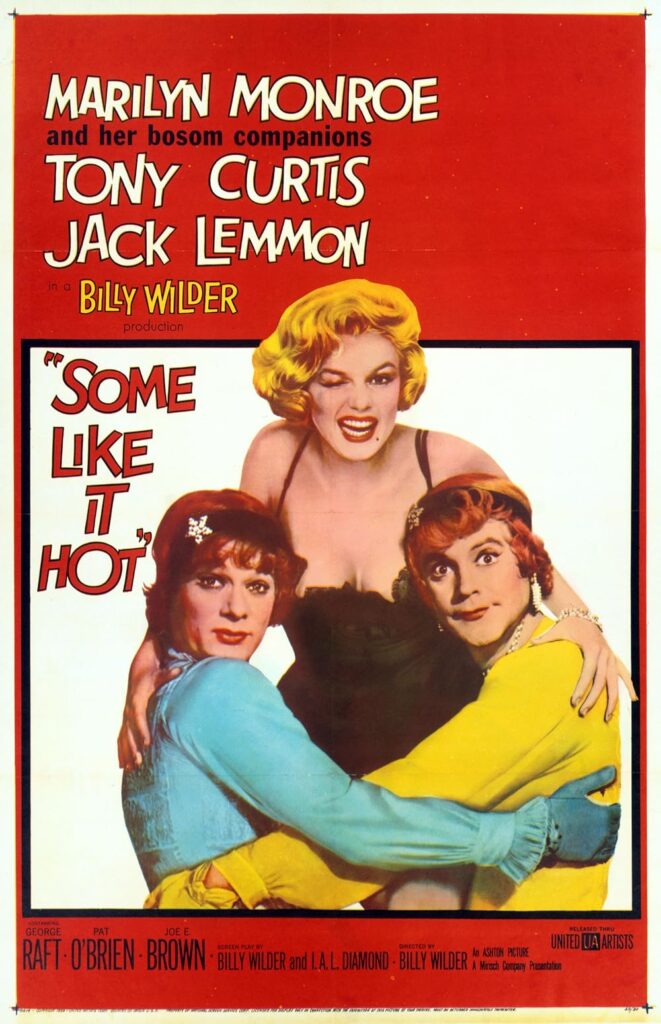
“Some Like It Hot,” directed by the legendary Billy Wilder, is a timeless comedy that has captivated audiences since its release in 1959. This film, set against the backdrop of the Prohibition era, follows two musicians, Joe (Tony Curtis) and Jerry (Jack Lemmon), who witness a mob hit and must go on the run. To escape the gangsters, they disguise themselves as women and join an all-female band headed to Florida, leading to a series of hilarious misadventures.
Wilder’s direction is masterful, balancing sharp wit with profound social commentary. The film cleverly explores themes of gender roles and identity, showcasing the fluidity of gender through the characters’ disguises. Curtis and Lemmon deliver outstanding performances, navigating the comedic chaos while portraying their characters’ struggles with their newfound identities. Their chemistry is palpable, adding depth to their comedic antics.
Marilyn Monroe shines as Sugar Kane, the band’s glamorous singer becomes the object of Joe’s affections. Her portrayal combines charm and vulnerability, making her a memorable figure in cinema history. The film’s iconic final line, delivered by Lemmon, encapsulates its playful yet profound exploration of love and acceptance.
Wilder’s screenplay is filled with rapid-fire dialogue and clever puns, ensuring that the humor remains fresh even decades later. The film’s aesthetic, characterized by vibrant costumes and a lively score, enhances its comedic tone and period setting.
“Some Like It Hot” stands out not only as a hallmark of American cinema but also as a cultural touchstone that continues to resonate with audiences today. Its blend of humor, romance, and social commentary makes it a quintessential example of the screwball comedy genre, solidifying its place in film history.
2. “Monty Python and the Holy Grail” (1975) – Directed by Terry Gilliam and Terry Jones
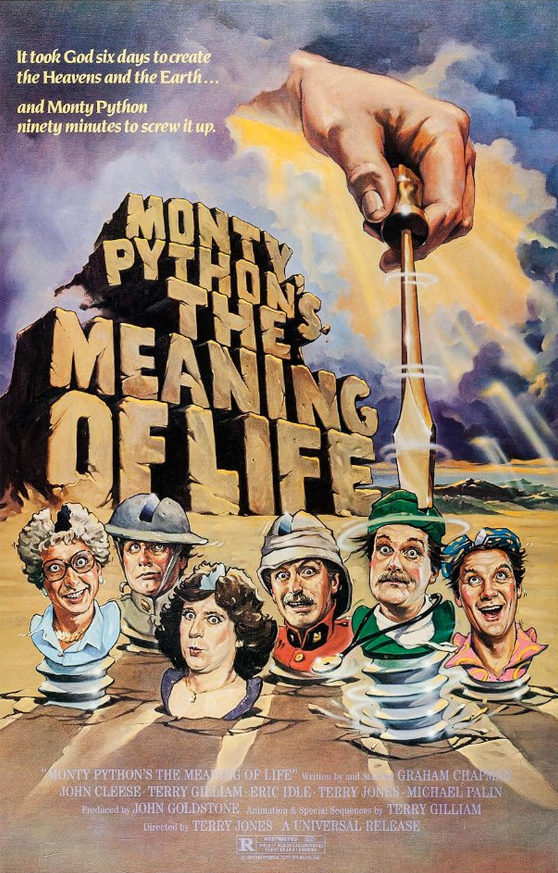
“Monty Python and the Holy Grail,” released in 1975, is a cult classic that redefined the boundaries of comedy. Directed by Terry Gilliam and Terry Jones, this film parodies the legend of King Arthur and his quest for the Holy Grail, blending absurdity with sharp satire.
The film opens with King Arthur, portrayed by Graham Chapman, gathering his knights in search of the elusive Grail. What follows is a series of comedic episodes that poke fun at chivalry, historical narratives, and the very concept of filmmaking itself. The Knights of the Round Table, including memorable characters like Sir Lancelot (John Cleese) and Sir Galahad (Michael Palin), embark on ridiculous quests, encountering bizarre obstacles, including the infamous Killer Rabbit and the Knights Who Say Ni.
One of the film’s standout features is its innovative use of low-budget effects and witty dialogue. The Python troupe’s signature humor—characterized by surreal sketches and clever wordplay—keeps viewers engaged and amused. The film’s structure often breaks the fourth wall, subverting audience expectations and adding to its charm.
The cinematography, marked by stunning landscapes and imaginative set designs, juxtaposes the grandeur of Arthurian legend with the absurdity of the characters’ quests. Iconic scenes, such as the “Bring out your dead!” sketch and the song “Always Look on the Bright Side of Life,” have become cultural touchstones.
“Monty Python and the Holy Grail” remains influential in comedy, inspiring countless filmmakers and comedians. Its unique blend of humor, historical parody, and philosophical musings ensures its status as a beloved classic, continuing to entertain audiences with its irreverent take on the age-old quest for glory.
3. “Groundhog Day” (1993) – Directed by Harold Ramis
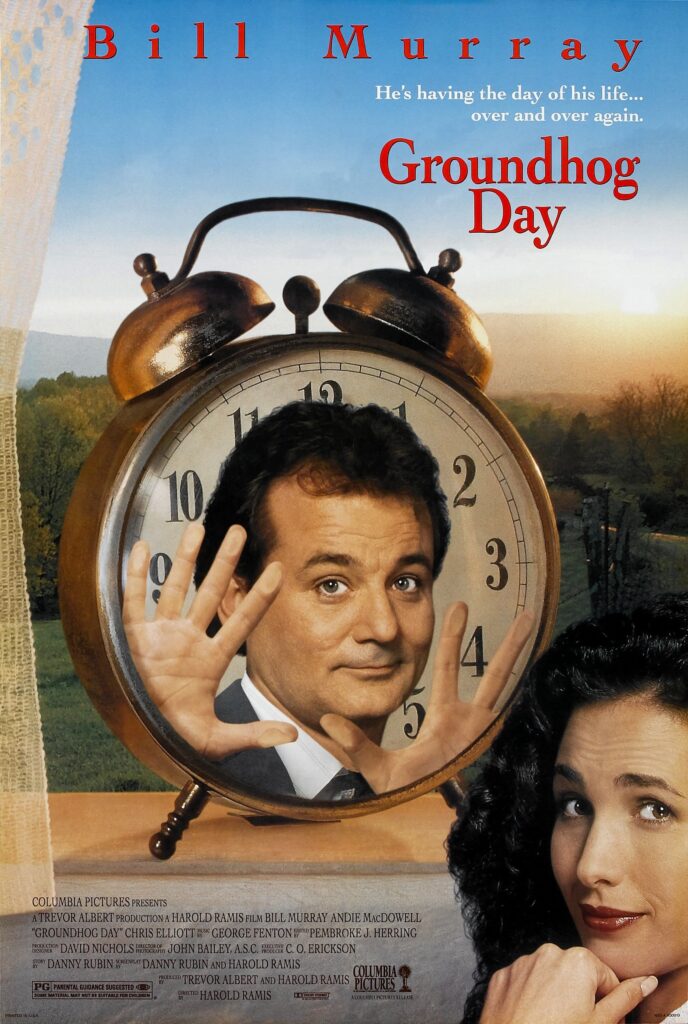
“Groundhog Day,” directed by Harold Ramis and released in 1993, is a groundbreaking comedy that explores themes of time, transformation, and the human experience. Starring Bill Murray as Phil Connors, a cynical weatherman, the film follows Phil as he is assigned to cover the annual Groundhog Day festivities in Punxsutawney, Pennsylvania. However, he soon finds himself trapped in a time loop, reliving the same day over and over again.
The premise is both humorous and thought-provoking: Phil initially uses his situation to indulge in selfish desires and hedonistic pleasures, but as the days repeat, he confronts the emptiness of his lifestyle. Murray’s performance is a masterclass in comedic timing and emotional depth, capturing Phil’s evolution from arrogance to introspection. His transformation becomes the heart of the film, prompting audiences to reflect on their own lives and choices.
Ramis expertly blends comedy with philosophical insights, using the time loop as a device to explore themes of redemption and self-improvement. Phil’s journey ultimately leads him to embrace kindness and connection, as he begins to invest in the people around him, including his producer Rita, played by Andie MacDowell. Their relationship adds a romantic layer to the narrative, highlighting the importance of genuine human connections.
“Groundhog Day” is renowned for its clever script and memorable quotes, making it a favorite among audiences. Its influence extends beyond comedy, prompting discussions about personal growth and the significance of each day. The film’s enduring appeal lies in its ability to entertain while also encouraging viewers to consider how they live their lives. “Groundhog Day” remains a cinematic gem, combining humor and heartfelt messages in a way that resonates even decades after its release.
4. “Bridesmaids” (2011) – Directed by Paul Feig
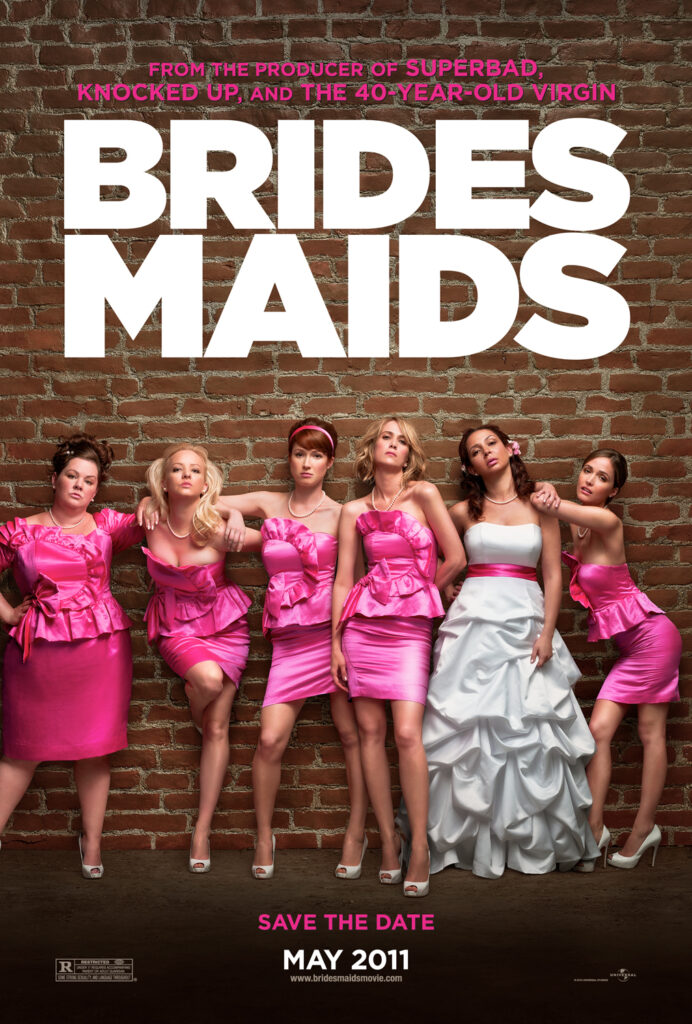
“Bridesmaids,” directed by Paul Feig and released in 2011, is a landmark film in the realm of romantic comedies, redefining the genre with its raw humor and authentic portrayal of female friendships. Starring Kristen Wiig as Annie, the story follows her tumultuous life as she navigates personal and professional challenges while preparing for her best friend Lillian’s (Maya Rudolph) wedding.
The film begins with Annie in a rut, dealing with a failing bakery and a complicated love life. When Lillian asks her to be the maid of honor, Annie is eager to take on the role, but soon finds herself overwhelmed by the demands of planning and the colorful cast of bridesmaids, including the wealthy and competitive Helen (Rose Byrne). The dynamic between Annie and Helen drives much of the film’s conflict, showcasing a blend of rivalry and eventual camaraderie.
One of the standout aspects of “Bridesmaids” is its unfiltered humor. The film features a mix of slapstick and witty dialogue, leading to unforgettable scenes, such as the notorious bridal shower and the chaotic dress fitting. These moments not only provide laughs but also highlight the absurdity and joy of wedding planning.
The film’s strength lies in its heartfelt moments, exploring themes of friendship, self-acceptance, and resilience. Annie’s journey of self-discovery resonates with many, as she learns to embrace her flaws and rebuild her life.
“Bridesmaids” was a critical and commercial success, earning two Academy Award nominations and solidifying its place as a cultural touchstone. It showcases a talented ensemble cast, led by Wiig, and emphasizes that women can be just as funny and relatable in a genre traditionally dominated by men. Its legacy endures as a celebration of friendship and the trials of growing up, proving that laughter and love often go hand in hand.
5. “The Big Lebowski” (1998) – Directed by Joel and Ethan Coen
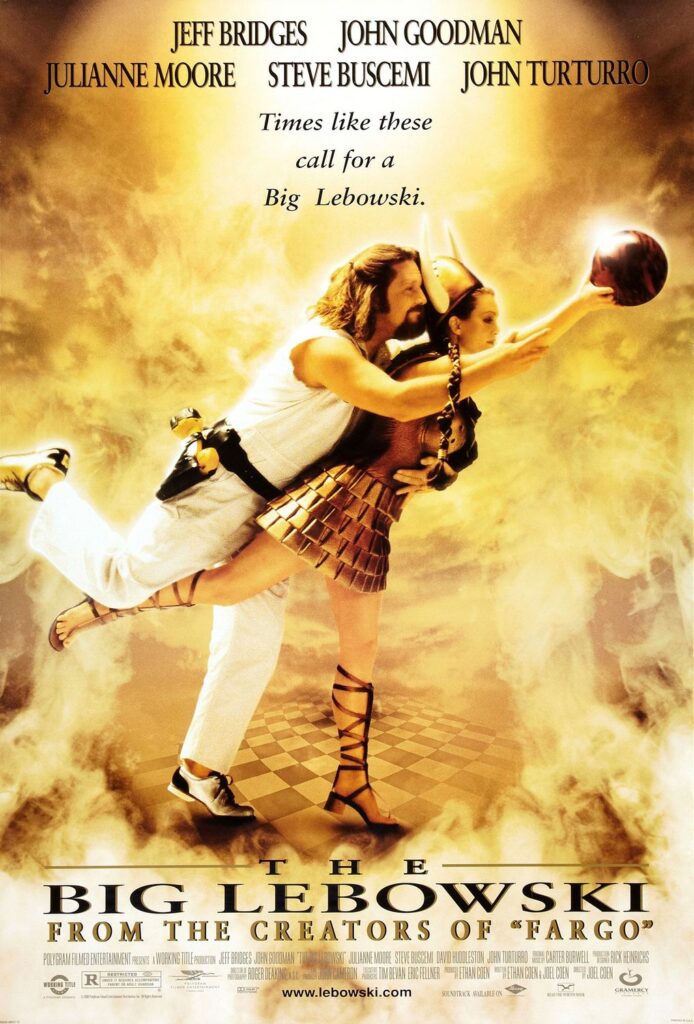
“The Big Lebowski,” directed by Joel and Ethan Coen and released in 1998, is a cult classic that blends crime, comedy, and existential musings in a uniquely quirky narrative. The film follows Jeffrey “The Dude” Lebowski, played by Jeff Bridges, a laid-back slacker whose life takes a chaotic turn when he becomes embroiled in a case of mistaken identity.
The story begins when The Dude, an avid bowler and lover of White Russians, is drawn into a bizarre kidnapping plot after two thugs mistake him for a wealthy businessman sharing his name. The Coen brothers craft a surreal tapestry of characters, including The Dude’s eccentric friends, Walter (John Goodman) and Donny (Steve Buscemi), who contribute to the film’s offbeat humor and memorable dialogue.
One of the film’s standout features is its rich tapestry of themes, including nihilism, the search for meaning, and the absurdity of life. The Dude’s nonchalant attitude in the face of chaos serves as a counterpoint to the aggressive personalities around him, inviting audiences to reflect on the nature of existence and the pursuit of happiness.
Visually, “The Big Lebowski” is marked by its distinctive cinematography and clever use of dream sequences, which enhance its surreal quality. The film’s eclectic soundtrack, featuring everything from classic rock to original compositions, further immerses viewers in its unique atmosphere.
Though it received mixed reviews upon release, “The Big Lebowski” has since gained a dedicated fanbase, celebrated for its quotable lines and iconic characters. The film’s enduring appeal lies in its blend of comedy and philosophical inquiry, making it a touchstone of American cinema that continues to inspire discussions about life, leisure, and the pursuit of “The Dude” lifestyle.
6. “Superbad” (2007) – Directed by Greg Mottola

“Superbad,” directed by Greg Mottola and released in 2007, is a coming-of-age comedy that brilliantly captures the awkwardness of teenage life and the bittersweet transition to adulthood. Starring Jonah Hill as Seth and Michael Cera as Evan, the film revolves around two high school friends determined to make the most of their last weeks before graduation.
The plot centers on Seth and Evan’s quest to secure alcohol for a party, hoping to impress their crushes, Becca (Martha MacIsaac) and Jules (Emma Stone). What unfolds is a chaotic night filled with misadventures, unexpected encounters, and the hilarious antics of their eccentric friend Fogell, a.k.a. “McLovin,” played by Christopher Mintz-Plasse. The film is celebrated for its sharp dialogue, memorable one-liners, and relatable scenarios that resonate with anyone who has experienced the trials of adolescence.
Mottola’s direction skillfully balances raunchy humor with genuine emotion, showcasing the friendship between Seth and Evan as they navigate the pressures of growing up. The film captures the essence of teenage awkwardness, from the struggles of social interactions to the fear of impending separation as high school comes to an end.
“Superbad” is also notable for its cultural impact, launching the careers of its young stars and cementing the comedic talents of writers Seth Rogen and Evan Goldberg. The film’s portrayal of friendship, love, and the quest for identity strikes a chord with audiences, making it a modern classic in the teen comedy genre.
With its blend of humor and heart, “Superbad” remains a beloved film that captures the essence of youth, reminding viewers of the laughter and challenges that come with growing up. Its legacy endures, inspiring new generations to embrace the hilarity of teenage life.
7. “Airplane!” (1980) – Directed by Jim Abrahams, David Zucker, and Jerry Zucker
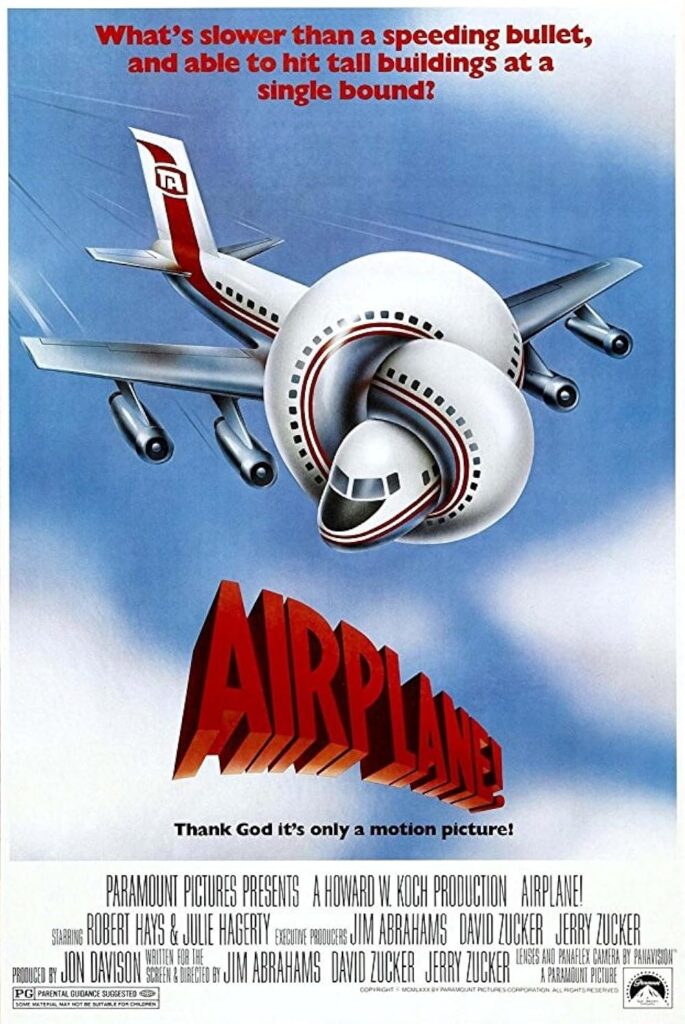
“Airplane!” is a groundbreaking comedy film that redefined the genre upon its release in 1980. Directed by the trio of Jim Abrahams, David Zucker, and Jerry Zucker, the film is a parody of the disaster movie genre, particularly the 1957 Paramount film “Zero Hour!” Its fast-paced humor and relentless gags have made it a timeless classic.
The plot centers around Ted Striker, played by Robert Hays, a former fighter pilot with a fear of flying who must confront his anxieties when he boards a commercial flight to win back his ex-girlfriend, flight attendant Elaine (Julie Hagerty). When a food poisoning outbreak leaves the crew incapacitated, Ted must take control of the aircraft, leading to a series of hilarious and absurd situations.
What sets “Airplane!” apart is its unique brand of humor, characterized by clever wordplay, visual puns, and slapstick comedy. The film features an ensemble cast, including Leslie Nielsen as Dr. Rumack, who delivers deadpan lines that have become iconic. Each scene is packed with jokes, often layered and overlapping, ensuring that the laughter never stops.
The film’s commitment to parody extends beyond its narrative, as it pokes fun at various clichés found in disaster films and the aviation industry. Its influence can be seen in numerous comedies that followed, establishing a template for spoof films.
“Airplane!” was both a critical and commercial success, earning several awards and accolades. Its enduring popularity can be attributed to its innovative humor and memorable quotes, making it a beloved staple of American cinema. Today, it remains a landmark in comedy, celebrated for its ability to elicit laughter while simultaneously paying homage to a genre ripe for parody.
8. “The Princess Bride” (1987) – Directed by Rob Reiner
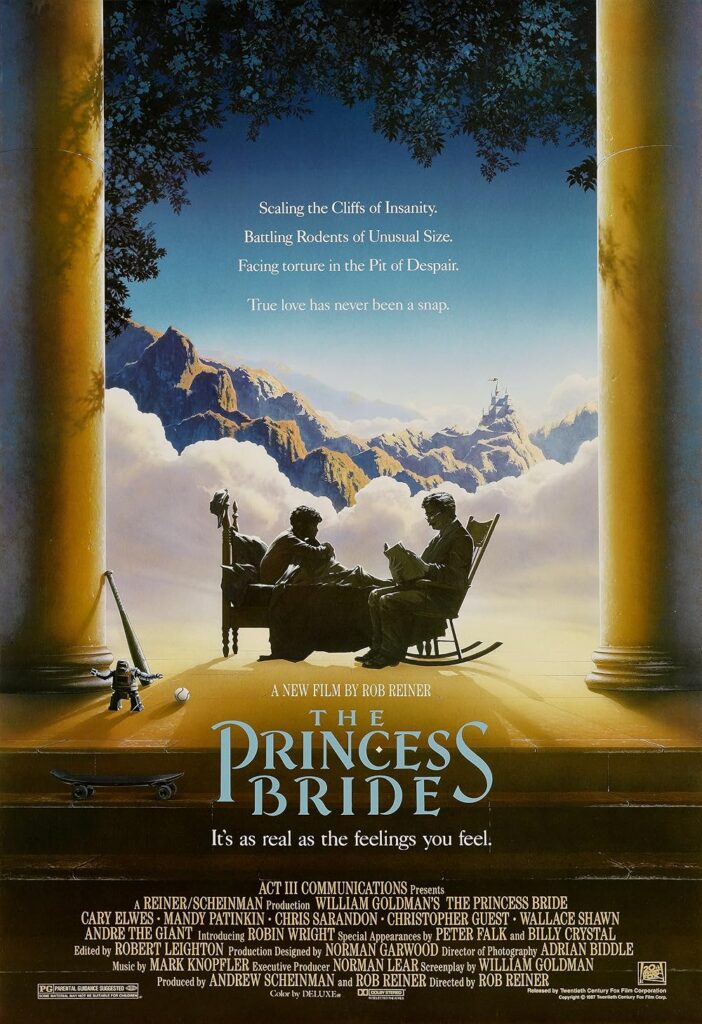
“The Princess Bride,” directed by Rob Reiner and released in 1987, is a beloved fantasy adventure film that has captured the hearts of audiences for decades. Based on the novel by William Goldman, the film blends romance, humor, and action in a delightful fairy tale setting.
The story unfolds as a grandfather (Peter Falk) reads to his sick grandson (Fred Savage) from a book titled “The Princess Bride.” The narrative follows the beautiful Buttercup (Robin Wright) and her true love, Westley (Cary Elwes), a farmhand who embarks on a perilous journey to rescue her after she is kidnapped by the evil Prince Humperdinck (Chris Sarandon).
The film is notable for its witty dialogue, memorable characters, and a charming mix of adventure and romance. Westley’s quest features an array of quirky characters, including the cunning Inigo Montoya (Mandy Patinkin), who seeks revenge for his father’s murder, and the giant Fezzik (Wallace Shawn), who provides both strength and heart. Each character adds depth to the story, delivering quotable lines that have become iconic, such as Inigo’s famous vow, “Hello. My name is Inigo Montoya. You killed my father. Prepare to die.”
Reiner’s direction skillfully balances the film’s whimsical elements with genuine emotion, making it appealing to both children and adults. The film’s charm lies in its ability to parody traditional fairy tales while still embracing their timeless qualities.
“The Princess Bride” was initially met with modest success but has since grown into a cult classic, celebrated for its unique storytelling and engaging performances. Its blend of adventure, romance, and humor ensures that it remains a favorite, proving that true love and friendship can conquer even the most daunting obstacles.
9. “Ferris Bueller’s Day Off” (1986) – Directed by John Hughes
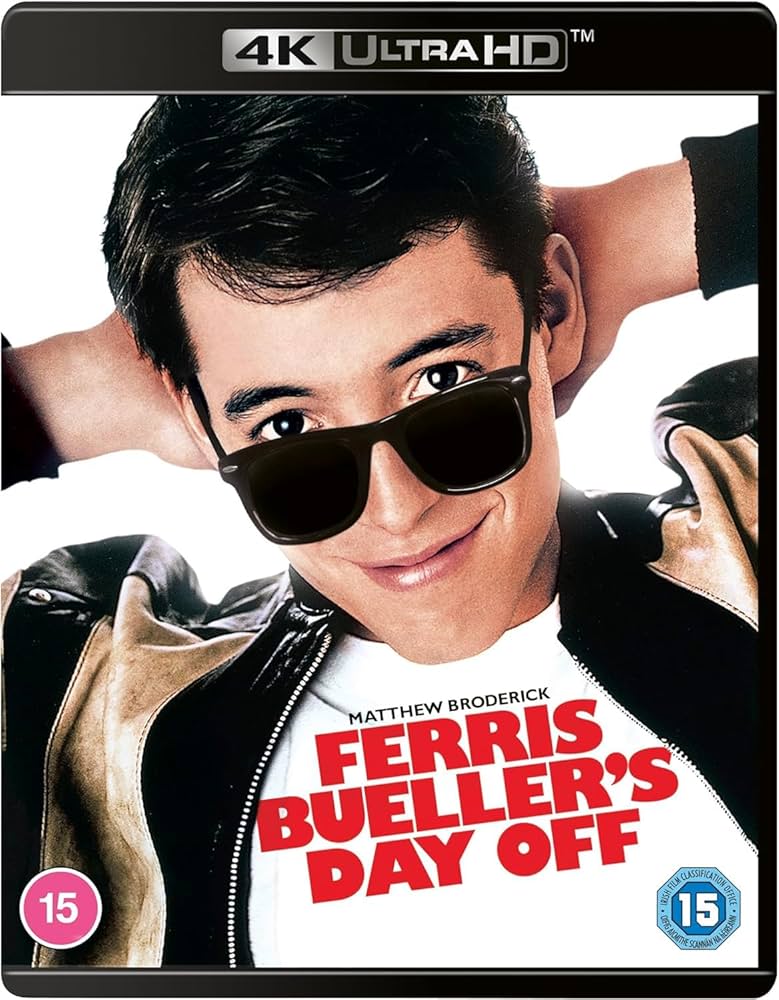
“Ferris Bueller’s Day Off,” directed by John Hughes and released in 1986, is a quintessential teen comedy that has become a cultural touchstone. The film follows Ferris Bueller (Matthew Broderick), a charismatic high school student who decides to take a day off from school. With his charm and quick wit, Ferris devises an elaborate plan to enjoy a perfect day in Chicago, all while outsmarting his parents and the relentless school principal, Ed Rooney (Jeffrey Jones).
The narrative unfolds as Ferris ropes in his girlfriend Sloane (Mia Sara) and his anxious best friend Cameron (Alan Ruck) into his adventure. Together, they experience a series of escapades, from visiting the Art Institute of Chicago to attending a Cubs game. The film’s lighthearted tone is complemented by its clever dialogue and memorable moments, including Ferris’s famous declaration that “life moves pretty fast. If you don’t stop and look around once in a while, you could miss it.”
Hughes’s direction captures the essence of youthful rebellion and the desire for freedom. Ferris serves as the ultimate anti-hero, embodying the spirit of carefree adolescence while simultaneously highlighting the pressures faced by high school students. The film cleverly breaks the fourth wall, with Ferris often speaking directly to the audience, inviting them into his world and adding to his charm.
“Ferris Bueller’s Day Off” was both a critical and commercial success, solidifying its status as a classic. Its themes of friendship, adventure, and the importance of enjoying life resonate with audiences of all ages. More than just a comedy, the film is a celebration of youth and spontaneity, reminding viewers to embrace the joy of living in the moment.
10. “The Grand Budapest Hotel” (2014) – Directed by Wes Anderson
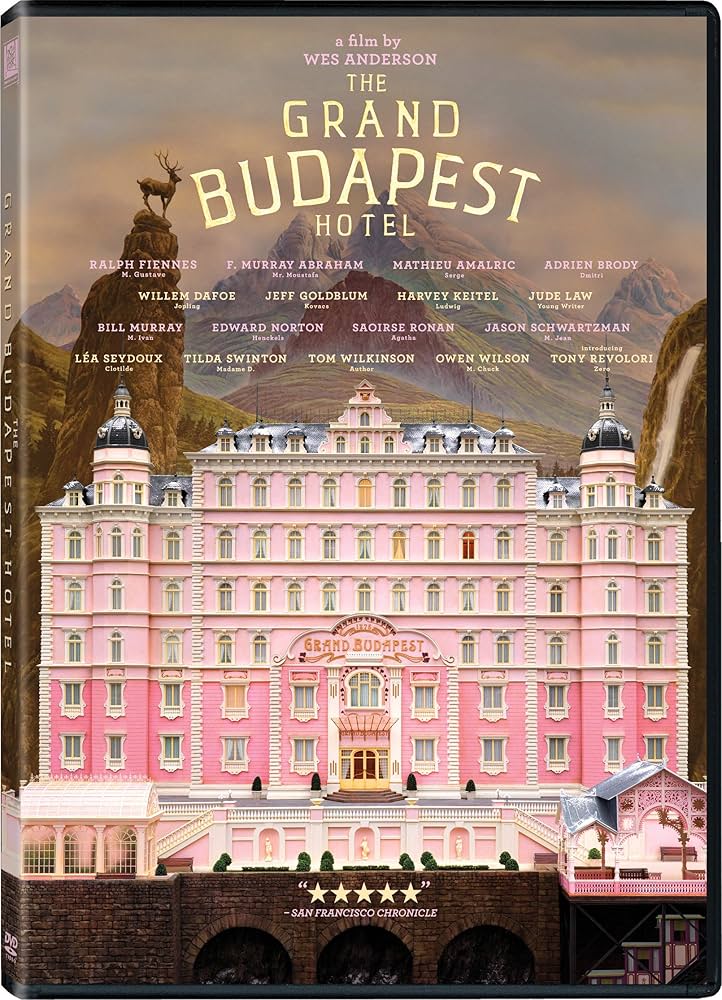
“The Grand Budapest Hotel,” directed by Wes Anderson and released in 2014, is a visually stunning and whimsically crafted film that showcases the director’s signature style. Set in the fictional Republic of Zubrowka between the two World Wars, the story revolves around the misadventures of Gustave H., the charming concierge of the titular hotel, played masterfully by Ralph Fiennes.
The narrative unfolds through the eyes of a young lobby boy named Zero (Tony Revolori), who becomes Gustave’s protégé. Their bond deepens as they navigate a series of events triggered by the death of a wealthy guest, Madame D. (Tilda Swinton), and her priceless painting, which becomes the center of a chaotic inheritance battle. The plot is rich with quirky characters, including a comically menacing hitman (Willem Dafoe) and a heartbroken rival (Adrien Brody), creating a tapestry of humor and intrigue.
Anderson’s distinctive visual aesthetic is on full display, featuring meticulous set designs, vibrant colors, and symmetrical compositions that transport viewers to a fantastical world. The film’s unique style is complemented by an eclectic score from Alexandre Desplat, which enhances the whimsical and poignant moments throughout the narrative.
“The Grand Budapest Hotel” explores themes of friendship, loyalty, and the impact of history, all wrapped in a narrative that balances comedy and melancholy. The film’s sharp dialogue and intricate storytelling, along with standout performances from its ensemble cast, have earned it critical acclaim and numerous accolades, including several Academy Award nominations.
Ultimately, “The Grand Budapest Hotel” stands as a testament to Wes Anderson’s artistry, blending humor, nostalgia, and visual splendor. Its enduring charm and intricate storytelling make it a modern classic that continues to resonate with audiences worldwide.
